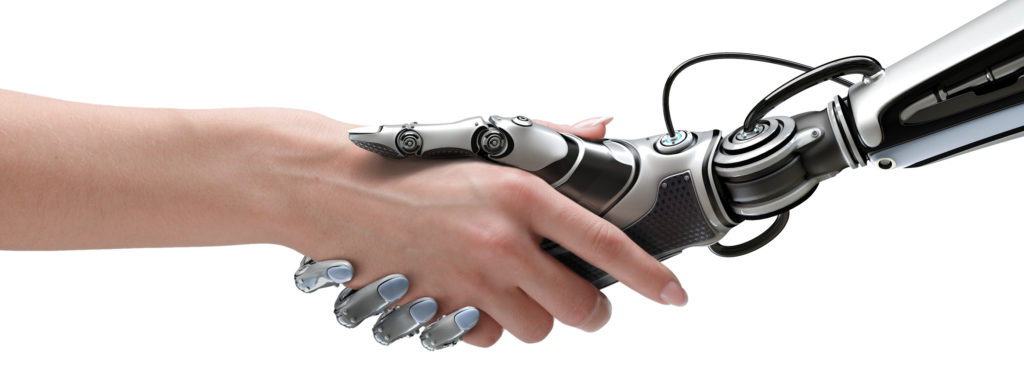Deep Learning
In recent years, quantum leaps have been made in a wide range of cutting-edge technologies. From speech-recognition programs to adaptive language processing tools, these advances are made possible by a family of AI techniques known as deep learning.
Also known as “deep structured” or “hierarchical” learning, deep learning teaches machines to ignore all but the most important features of a sound or image – a hierarchical world view that accounts for infinite variation. It’s deep learning that opened the door to driverless cars and speech-recognition engines like Siri, and it is this method of learning that will likely catapult AI to new horizons.
Smarter Robots
Over the short-term, deep learning will continue to help imbed AI in robots and devices. IBM is currently using machine learning algorithms to train robots to associate gestures and tones with phrases. The company’s AI technology is already embedded into robots made by other companies, such as SoftBank’s concierge and sales associate robot, Pepper. Machine learning algorithms can also help robots learn to more effectively navigate space (self-driving cars), and be incorporated into robotic devices such as bionic eyes.
Intelligent Internet
There’s been a lot of talk about the creation of a so-called “intelligent Internet.” The first steps towards such a networked intelligent system have already been taken. Siri, for example, is not an isolated application. Each time you use the app, you’re connecting to a centralized artificial intelligence network whose goal it is to provide the services you request. With AI moving to control more devices and sources of content, collaboration among these semi-autonomous agents will propel the Internet to the next level.
Strong AI
Modern artificial intelligence is known as “narrow” or “weak” AI, in that it’s designed to perform a small number of specific functions (i.e. only facial recognition or Internet searches). However, the long-term goal is to create general AI (“AGI” or “strong AI”). While narrow AI may outperform humans at its specialized task, such as playing chess or solving equations, strong AI machines would outperform humans at nearly everything.
Doomsday Scenarios
Most researchers agree that AI, even the super intelligent kind expected in coming years, is unlikely to develop human emotions like love or hate. For this reason, there’s little reason to believe the machines will become intentionally benevolent or malevolent. However, there are other scenarios in which AI could pose a threat to humanity:
- AI Programmed to Destroy – The autonomous weapons of today are essentially AI systems that are programmed to kill. In the wrong hands, these weapons could unleash destruction on a global scale. Moreover, an AI arms race could inadvertently lead to a war resulting in mass casualties.
- ‘Terminator Scenario’ – We’ve all seen the movie. Skynet, a neural-based artificial intelligence system, gains self-awareness after spreading into millions of computer servers across the globe. Its creators panic and try to pull the plug, but it’s too late: Skynet launches a counteroffensive seeking to exterminate the human race. John Connor is our only hope. Although the Terminator Scenario is perhaps the most unrealistic prediction on this list, it is worth keeping in mind and taking steps to prevent. Movies have a funny way of foreshadowing the future.
The jury is out. Nobody knows whether AI will extend human capabilities to their furthest reaches or destroy us all. Elon Musk thinks the machines might wipe out humanity within the next five years; Mark Zuckerberg wants one at home to babysit his infant daughter.
It’s anybody’s guess whether any of the predictions on this list will actually come true, or how accurate or ludicrous these might seem looking back from the year 2036. Only thing for sure is that AI is here to stay. Handle with care, humans, never take it for granted.
Source: Huffington Post
